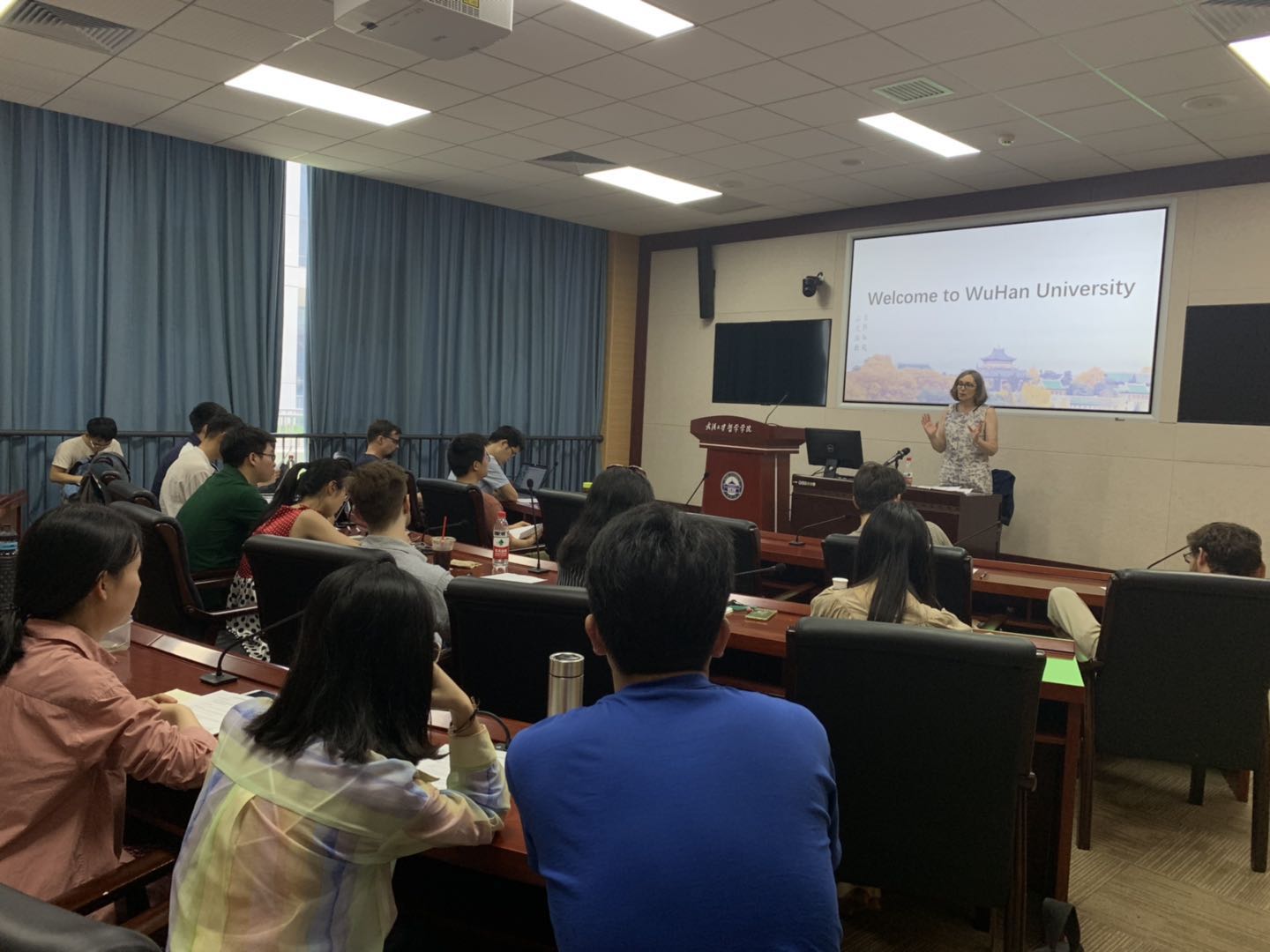Professor Helen Steward’s Lecture at the School of Philosophy: “Free Will and External Reality: Two Scepticisms Compared”
On Monday 15:00 p.m, May 27, 2019, Professor Helen Steward, the Professor of Philosophy of Mind and Action and currently Head of Philosophy at the University of Leeds, gave a lecture at B214 of the School of Philosophy. The theme of the lecture was “Free Will and External Reality: Two Scepticisms Compared”.

Overall, the structure of the Professor Helen Steward’s speech can be divided into the following four aspects: The first one is The Lazy Argument. The second, What’s the usual misinterpretation of the Lazy Argument – and why has it been tempting? The third, Scepticism about free will and skepticism about external reality: why the disanalogies? The last one is challenging the disanalogies.
First of all, the professor explained the lazy argument. Then she put up that “If determinism is true, all our strivings are equally futile to an absolute and categorical degree”. And explain it from the following two aspects: version 1 (Conative) and version 2 (Normative). At the same time, she made careful assumption and interpretation to these two kinds of version and draw two conclusions respectively.C1 is that if determinism is true, all our strivings are futile. C2 is that if determinism is true, we ought to strive.
Next, the professor explained pure suppositional conditionals and live option conditionals. She argues that pure suppositional conditional is a conditional one, which is offered in a context and which makes no assumptions about the epistemic standing of the antecedent. Using logical reasoning to prove, and finally drawing a conclusion that if determinism were true, all our strivings would be futile. The professor goes on assuming, P4, at least some of our strivings non-futile. The conclusion is that determinism is not true. As for a live option conditional, by contrast, it imports the assumption that the truth of its antecedent is a live option- and moreover, that its status as a live option is to be retained throughout any ensuing discussion. The conclusion is if determinism is, all our strivings are futile.

And then, the professor delved into the matter why determinism is so often treated as an option? She interprets that determinism is thought of by many philosophers as an essentially empirical thesis:“ For any given time, a complete statement of the facts about that time together with a complete statement of the laws of nature, entails every truth as to what happens after that time.
At the end of the lecture, the professor concluded that the denial of the existence of the external world has never really been seriously treated by anyone as a properly live option, Perhaps we should be more willing to accept that the denial of free will and agency should be put into the same category of non-live possibilities; in which case, the assertion of free will might be available for use as a premise in an argument against determinism based on a pure suppositional conditional.
At the end of the lecture, Professor Helen Steward interacted with the teachers and students on the issues related to the lecture, such as the further understanding of agency in the conclusion. The professor gave a detailed explanation of these questions. And the lecture ended with a round of applause.



